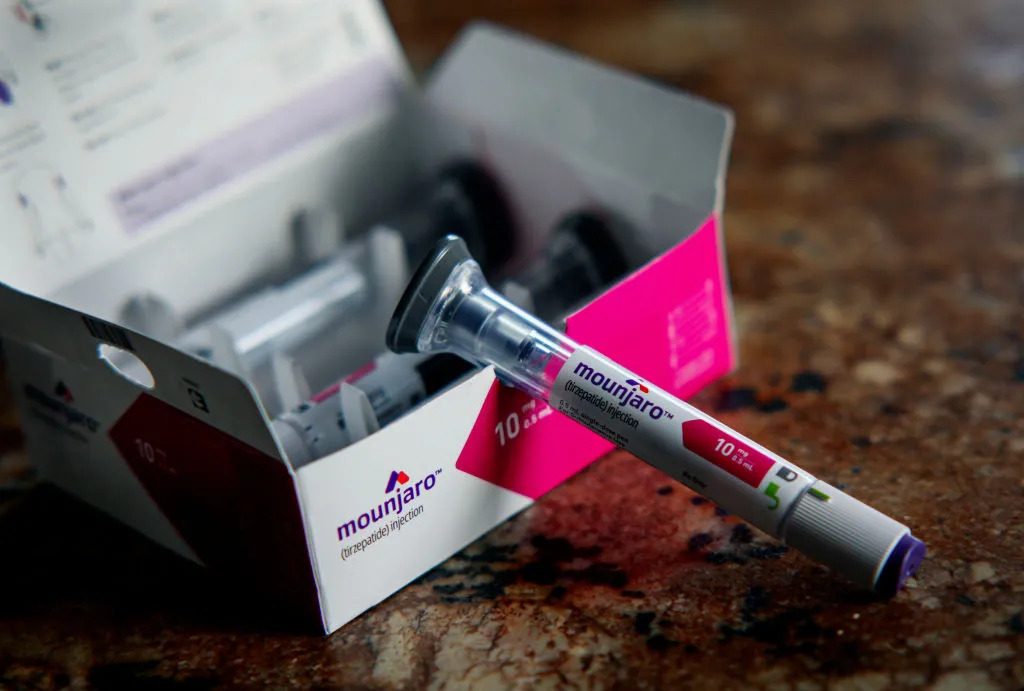
What are compounding pharmacies?
A compounding pharmacy is a specialized type of pharmacy that prepares customized medications to meet the unique needs of an individual patient when a commercially available drug does not meet those requirements.
These medications are created by licensed pharmacists and are tailored to meet specific patient needs when they are not readily available as commercially manufactured drugs or a patient may require a drug that is currently in shortage or discontinued.
What are compounded medicines?
Compounding medicine is a process of combining, mixing, altering packaging and labeling of ingredients to create a medicine that is tailored to the needs of an individual patient. Compounding pharmacists can customize medications based upon a healthcare provider’s prescription to meet a patient’s needs and create personalized medications in various forms, such as creams, capsules, gels, liquids, and more.
A licensed pharmacist who specializes in compounding medications can reformulate the drug to exclude an unwanted, non essential ingredient, such as lactose, gluten, or a dye to which a patient is allergic, has insensitivity or intolerance to that particular medication.
Who can make compounded medicine?
Licensed pharmacists who are trained and have had their knowledge and skills tested in pharmacy school on how to properly compound medications can make compounded medicine. In addition, pharmacists who specialize in compounded medicine generally have advanced training in compounding after they graduate from pharmacy school.
Compounding pharmacies are supervised by pharmacists and are regulated by state boards of pharmacy. They are ran by a licensed pharmacist in a state-licensed pharmacy, or federal facility, or by a physician, as well as compounding by or under the direct supervision of a licensed pharmacist in an outsourcing facility.
Outsourcing facilities are a category of compounders established in 2013 by the Drug Quality and Security Act. Outsourcing facilities are inspected by the FDA according to a risk-based schedule and are subject to increased quality standards.
Who regulates compounding pharmacies?
Compounding pharmacies are regulated by State Boards of Pharmacy and expected to comply with Current Good Manufacturing Practice (CGMP) requirements and may receive compounding accreditation. Compounding pharmacies adhere to strict regulations and quality standards to ensure the safety and efficacy of the customized medications they produce.
Additionally, compounding pharmacists work closely with healthcare providers to ensure that the compounded medications are appropriate for the patient’s specific medical condition and needs.
Compounded medicines are extensively tested and meet all applicable state and federal requirements. The practice of compounding is regulated by state boards of pharmacy. All pharmacists and Pharmacies engaged in compounding are subject to oversight by both federal and state authorities. Pharmacists engaged in compounding are expected to follow applicable standards and regulations for the types of preparations that are compounded.
FDA has oversight for the integrity and safety of the drugs (called Active Pharmaceutical Ingredients, or APIs, by FDA) used in compounded preparations.
The Drug Enforcement Administration (DEA) has oversight for any controlled substances used in the preparation of compounded medications including hydrocodone, amphetamines. In addition, the United States Pharmacopeial (USP) Convention issues standards that apply to compounding.
This private, nonprofit organization defines the chemical purity of drugs and also issues practice standards. USP develops standards for the identity, quality, strength, and purity of medicines, dietary supplements, and food ingredients that may be used in compounding preparations. These standards in particular are relevant to compounding pharmacists.

Compounded Medicine from FDA Registered Compounded Pharmacy !
At Everest Diabetes and Endocrinology, we use pharmacies that are state licensed that have undergone appropriate evaluation or approval and meet quality standards to provide safe products.
Who inspects facilities that compound drugs?
Various entities may inspect facilities that compound drugs, including state boards of pharmacy and the FDA. Generally, state boards of pharmacy have primary responsibility for the day-to-day oversight of state-licensed pharmacies that are not registered with the FDA as outsourcing facilities.
THe FDA does conduct surveillance and for-cause inspections of state-licensed pharmacies that are not registered as outsourcing facilities. Facilities that register with FDA as outsourcing facilities under section 503B are primarily overseen by FDA and inspected by FDA according to a risk-based schedule.
Can semaglutide or tirzepatide, the active ingredient in Ozempic and Mounjaro, be compounded?
If there is a shortage of a drug, compounded versions become legal in the United States. Compounded pharmacies can prepare a compounded version of that drug if they meet certain requirements in the Federal Food, Drug, and Cosmetic (FD&C) Act.
In May 2023, the FDA included both Ozempic and Mounjaro on its shortages list, legalizing compounded versions of the drugs. Obesity has been highly stigmatized and undertreated, the FDA recognizes that these compounded medications can fulfill an important need
Does insurance cover drugs from compounded pharmacies?
It is unfortunate that insurance companies often deny coverage for injectable weight loss medications including Semaglutide, Wegovy, and Tirzepatide, Zepbound to people with obesity. This is true even for patients who have used these medications to manage insulin resistance including pre-diabetes, polycystic ovarian syndrome (PCOS), metabolic disorders –which can prevent them getting Type 2 diabetes – and other complications of nerve, eye and kidney damage that comes with having diabetes in the future.
Many patients who struggle with obesity also suffer from high blood pressure, high cholesterol, sleep apnea, fatty liver, joint pain, back pain, pre-diabetes. These compounded weight loss injectable medicines can be a life saver in these patient’s situations. Just by losing weight, they can prevent or manage all these other conditions and prevent the overall healthcare costs incurred to manage multiple conditions. That’s why compounded medications can be important in treating these disease conditions and prevent any future complications.
What should patients know when getting compounded Semaglutide or Tirzepatide?
Patients should only obtain drugs containing semaglutide or tirzepatide with a prescription from a licensed healthcare provider including nurse practitioners, physician assistants or a physician. It is strongly discouraged for patients to purchase medicine online without any assessments or evaluations of their medical conditions, thorough lab assessment, without reviewing medications and allergies from licensed medical professionals.
Where should you get your weight loss medication prescription?
It is highly recommended that patients obtain weight loss medications from an endocrinology provider, weight loss specialist or someone who has specialized in this particular category of medications called GlP-1 receptor agonists to understand all the side effects and contraindications of the medicines.
People who buy weight loss medications online for unusually low prices without a prescription from a medical provider are unlikely to be getting them from a pharmacy that has strict regulatory oversight of its quality by a state board of pharmacy or the FDA. Without the supervision of a prescribing provider, the patient also does not receive nutritional counseling, injection demonstrations of the medication, or a discussion on side effects and how they can be reduced, leading to unnecessary side effects, complications or hospitalizations.
If you choose Everest Diabetes and Endocrinology for your weight loss journey, you will be treated by one provider throughout the program who has extensive knowledge and background about compounded medications, weight loss medications, nutrition and insulin resistance. A board certified nurse practitioner who is specialized in endocrinology, diabetes and weight loss treatments will provide you 1 on 1 personable care. We will start the program by offering complimentary consultation by answering all your questions, offer close monitoring of any side effects if experienced and regular follow ups visits, and provide resources and tools to help you succeed in your journey.
When is a compounding pharmacy necessary?
There are approximately 56,000 community-based pharmacies in the United States. According to American Pharmacists Association (APhA), there are about 7,500 licensed pharmacies that specialize in compounding. Compounding medicines are necessary when commercially manufactured drugs are not readily available, when there is shortage or are discontinued. Compounding pharmacies mix, alter, or combine FDA-approved drugs with different ingredients for people with particular needs, such as individuals who may be allergic to a certain dye, chemicals in the brand-name medication.
Why do some patients need compounded drugs?
Many hospitals, clinics, and health care providers use compounded drugs to patients when drugs from commercial pharmacies are not medically appropriate to treat them. Compounded medicines can play an important role in serving patients’ needs in situations when they have an allergy to a certain dye or chemicals in a medication, an elderly patient or a child who cannot swallow a tablet or capsule and needs a medicine in a liquid dosage form, or when medications are not commercially available.
Some of the common reasons for compounding medications include:
1. Allergies or sensitivities: Some patients may be allergic to certain ingredients found in commercially available medications. Compounding pharmacists can create allergen-free alternatives.
2. Dosage adjustments: Patients with unique dosage requirements, such as children or elderly, may need medications in strengths that are not commercially available. Compounding can provide customized dosing.
3. Flavor preferences: Compounded medications can be flavored to make them more palatable for children or individuals who have difficulty swallowing tablets or capsules.
4. Combination medications: Compounding allows pharmacists to combine multiple medications into a single dosage form for convenience and better adherence to treatment plans.
5. Medications not commercially available: In some cases, certain medications may be discontinued or temporarily unavailable in the market. Compounding pharmacies can help provide these medications to patients.
6. Alternative dosage forms: Compounding pharmacies can create medications in different forms, such as transdermal creams or suppositories, to accommodate patients who cannot take medications orally.
Our board certified nurse practitioner works with pharmacies who verifies that anti-obesity or weight loss medications and their formulations have undergone adequate clinical trial testing for efficacy and safety before prescribing it to the patients. All ingredients utilized in the production of compounded medications are produced in FDA regulated facilities, which are required to demonstrate acceptable purity and quality of the base molecule of Semaglutide or Tirzepatide.
Whether you are searching for Semaglutide, Tirzepatide, Phentarmine, Contrave for medical weight loss, compounded pharmacist can formulate a unique prescription for you based on your unique diagnosis and needs.
To find out what the right medication and treatment is for your weight loss journey, speak with our board nurse practitioner, contact us today.


